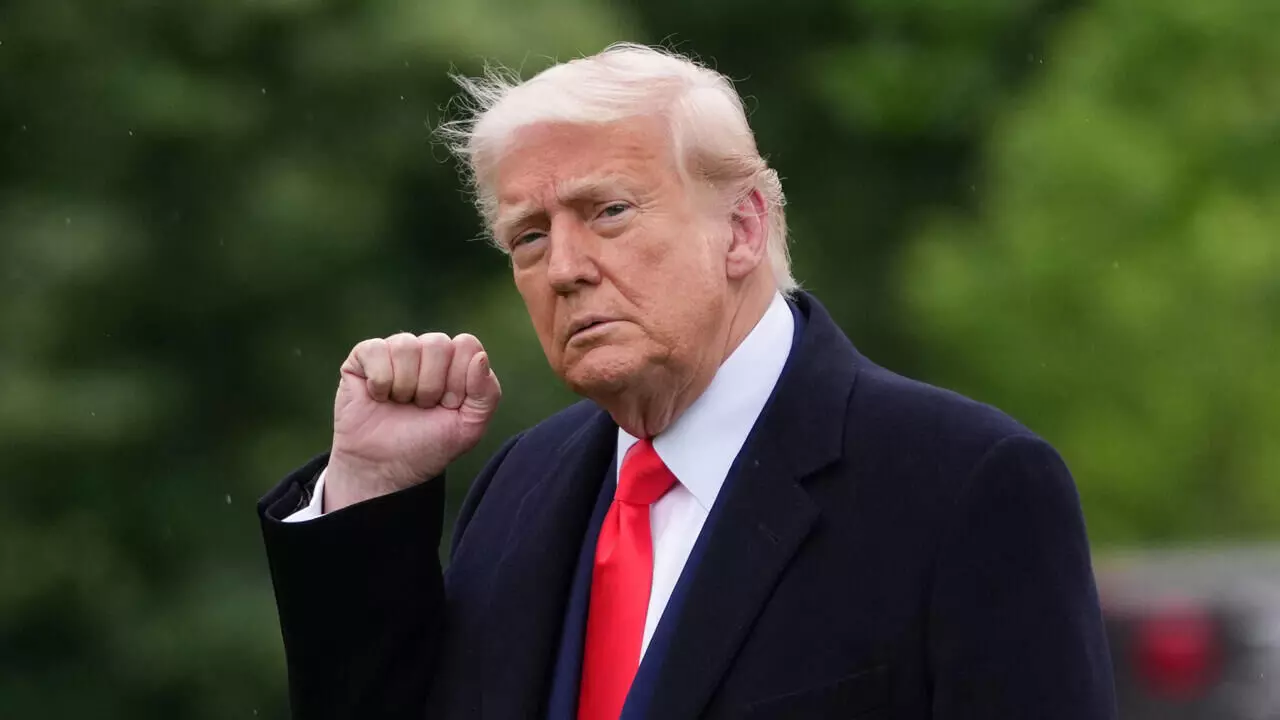Trump Declares Israel-Iran Ceasefire Amid Ongoing Strikes and Confusion

U.S. President Donald Trump on Tuesday insisted that a ceasefire between Israel and Iran was now in effect, even as he simultaneously accused both nations of violating the truce he had brokered in a last-ditch attempt to end nearly two weeks of escalating conflict.
“Israel is not going to attack Iran. All planes will turn around and head home, while doing a friendly ‘plane wave’ to Iran. Nobody will be hurt, the ceasefire is in effect! Thank you for your attention to this matter!” Trump posted on his Truth Social platform as he departed for a NATO summit in The Hague.
Yet, just minutes before that message, Trump had expressed anger over continued hostilities, warning Israel not to escalate further. In another post, he criticized Israel for launching airstrikes shortly after the deal was announced.
“Israel. Do not drop those bombs. If you do it, it is a major violation. Bring your pilots home, now!” he wrote. Speaking later to reporters at the White House, Trump said, “As soon as we made the deal, Israel dropped a load of bombs like I’ve never seen before. I have to get Israel to calm down. We basically have two countries that have been fighting so long and so hard that they don’t know what the f-*-*-* they’re doing.”
Trump said he was "not happy" with either side, especially Israel, accusing it of "unloading" its arsenal moments after committing to the truce.
The ceasefire, which Trump declared early Tuesday morning as a “complete and total” agreement between the long-time foes, was quickly thrown into question. Iran initially denied any agreement had been reached, though later said it had paused its military operations.
Despite the ceasefire announcement, Israeli officials reported continued missile attacks from Iran, claiming at least four people were killed and six wounded in strikes that followed Trump’s declaration. Iranian state media later announced that the ceasefire had taken effect—but only after "four waves of Iranian attacks on Israeli-occupied territories."
Trump took to Truth Social again, urging both sides to honor the ceasefire and halt all military activity.
This dramatic and unexpected ceasefire announcement came just two days after Trump ordered airstrikes on Iran’s nuclear facilities. On June 21, under “Operation Midnight Hammer,” the U.S. military joined Israel in targeting three key Iranian nuclear sites—Fordow, Natanz, and Esfahan—in a 25-minute operation that marked a major escalation in the conflict.
Iran responded by launching ballistic missiles at U.S. bases in the region. Operation Besharat Fatah, as announced by Iranian state TV, included strikes on the Al Udeid Air Base in Qatar and the Ain al-Asad base in Iraq, both of which house American troops.
Tensions had been building since June 12, when Israel launched “Operation Rising Lion,” targeting Iranian nuclear sites based on claims that Tehran was close to developing a nuclear weapon. Iran, which maintains that its nuclear program is purely for peaceful purposes, responded with a barrage of missiles and drone strikes, leading to significant destruction and casualties on both sides.
In the midst of the chaos, Israeli Defense Minister Israel Katz confirmed that he had authorized new strikes on Tehran in response to what he described as “blatant violations” of the ceasefire by Iran. Tehran, however, denied launching any new missiles, and accused Israel of continuing its attacks well after the ceasefire was supposed to begin.
As of now, the situation remains tense and fluid, with both sides trading accusations—and missiles—even as the U.S. president insists that peace is holding.
